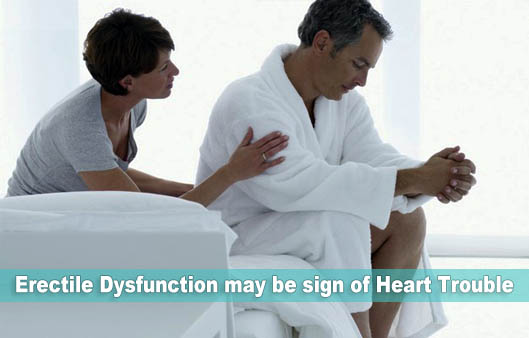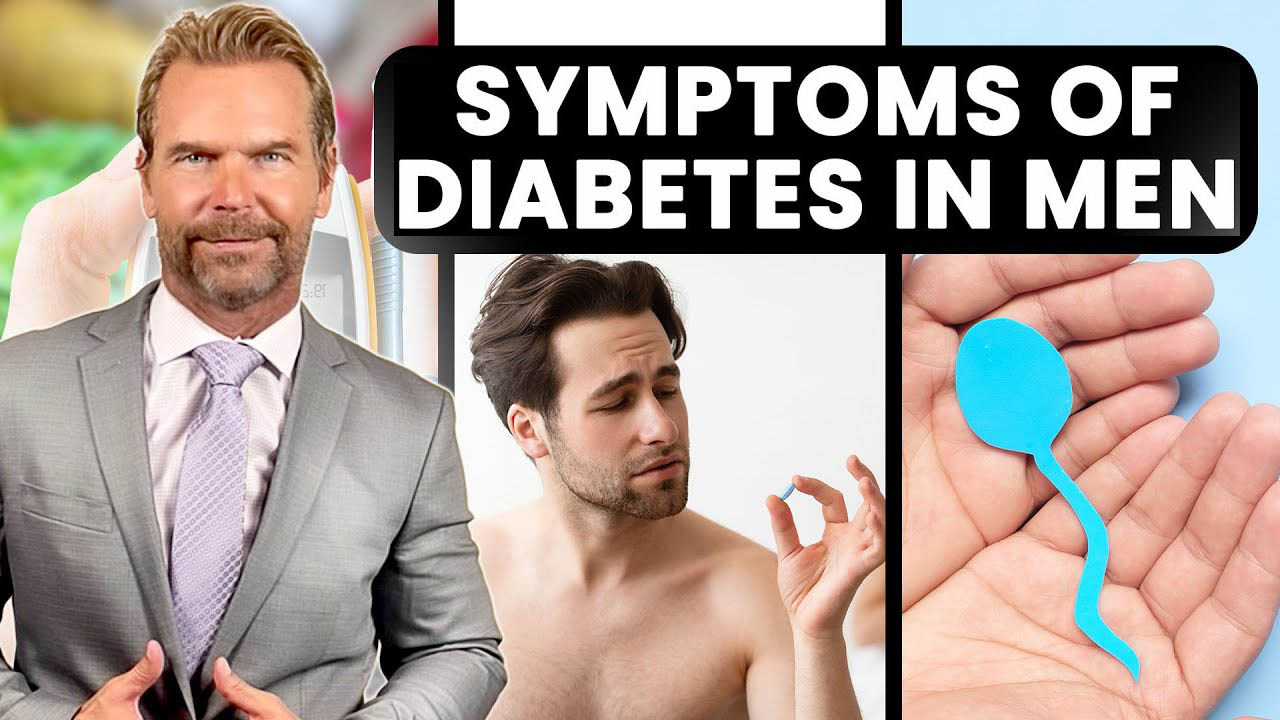Few men may realise it, but if they’re having problems achieving or sustaining erections, it may signal underlying heart trouble. Erectile dysfunction, or impotence, affects more than 18 million American men, according to a recent study by researchers at the Johns Hopkins Bloomberg School of Public Health. And now a growing body of research ties erectile dysfunction to vascular diseases, such as coronary artery disease. “Erectile dysfunction is often caused by vascular disease,” explained Dr Ian Thompson, professor and chairman of the department of urology at the University of Texas Health Science Centre at San Antonio. “A man could perceive decreased blood flow to the penis as being a less strong, a weaker erection, and that may actually be one of the first indicators of blood vessel disease.”
One recent report found men with erectile dysfunction had poorer scores on exercise tests and other measures of coronary heart disease. They also had evidence of significant coronary artery blockages. “Our study found that among men who were sent for a stress test by their doctor, the presence of erectile dysfunction was a potent predictor — a strong risk factor — for significant underlying heart disease,” said lead researcher Dr R Parker Ward, an assistant professor of medicine and director of the cardiology clinic at the University of Chicago Hospitals. “It was a stronger risk factor than some of the traditional risk factors we commonly ask questions about, things like high blood pressure and high cholesterol,” he added. Ward’s study, published last year in the Archives of Internal Medicine, involved men who had been referred to cardiologists for nuclear stress testing, a non-invasive way to determine the severity of coronary heart disease. But even among men without heart symptoms, erectile dysfunction is a strong risk factor for future risk of heart attack, he noted. “When you calculated a global cardiovascular risk, (it) was strongly associated with the probability that you had erectile dysfunction,” said Grover, a professor of medicine and epidemiology at McGill University Health Centre in Montreal. “And subsequently there have been other studies that have shown that people who have erectile dysfunction are, in fact, more likely to develop cardiovascular disease in the future.” Thompson and his colleagues provided the first substantial evidence linking erectile dysfunction and subsequent risk for heart disease in a December 2005 report in the Journal of the American Medical Association. Yet the connection is not as well recognised among doctors and patients as cardiologists and urologists think it should be. “A lot of men don’t have physicians,” Thompson explained. “They may not know what their blood pressure is or their lipid profiles, or they may be smokers, and they may never have been counselled to stop smoking or to reduce their weight. We think that if men with erectile dysfunction went to see their physicians, it may enable the interaction with the physician to discuss other coronary risk factors,” he said.
Sex thrice a week halves erectile dysfunction risk
Frequency Of Morning Erections Indicates Onset Of Erectile Dysfunction
A new study has revealed that frequent intercourse can cut erectile dysfunction (ED) risk in men.
Researchers from Finland have revealed that men who had intercourse more often were less likely to develop ED. Over the period of five years, the team studied 989 men between 55 to 75 years from Pirkanmaa, Finland.
They found that men who had intercourse less than once per week were twice as likely to suffer from erectile dysfunction. Further, the risk of erectile dysfunction was inversely related to the frequency of intercourse.
Out of 1000 cases, 79 cases had men who had sexual intercourse less than once per week, which dropped to 32 cases per 1000 in men having intercourse once per week. The number further dropped to 16 per 1000 in those reporting intercourse 3 or more times per week.
In addition, the frequency of morning erections predicted the development of complete erectile dysfunction, with an approximate 2.5-fold risk among those with less than 1 morning erection per week compared with 2 to 3 morning erections per week.
“Regular intercourse has an important role in preserving erectile function among elderly men, whereas morning erection does not exert a similar effect,” said Juha Koskimaki of Tampere University Hospital, Department of Urology, Tampere, Finland.
“Continued sexual activity decreases the incidence of erectile dysfunction in direct proportion to coital frequency,” Koskimaki added.
The study indicates that regular intercourse protects men from the development of erectile dysfunction, which may, in turn, impact general health and quality of life. The study is published in the July issue of The American Journal of Medicine.
Healthy lifestyle could fight Erectile Dysfunction
Regular exercise and a healthy diet could be helpful for people affected by erectile dysfunction, say scientists. Elizabeth Selvin and other researchers at John Hopkins Bloomberg School of Public Health, Baltimore, collected data on erectile dysfunction (ED) from more than 2,200 adult American men. The data was collected from participants in the US government’s 2001-2002 National Health and Nutrition Examination Survey (NHANES). The study, the first with national data on the prevalence of ED in the US, suggests that lifestyle intervention, such as exercise and diet, may be an effective treatment. “ED varies by age, with five per cent of men aged 20 to 40 having ED, to 70 per cent in men aged 70 and older,” she noted. In fact, the study suggests that about 18 million American men are affected. “ED is especially prevalent among men with high blood pressure, diabetes and other cardiovascular risk factors,” Selvin said. Increasing physical activity, weight loss, and control of high blood pressure, cholesterol and diabetes can also reduce the incidence of heart attacks and strokes, Arthur Schwartzbard, of the New York University’s Lipid Treatment and Research Center said. “I would expect that such overall lifestyle changes could have a positive impact on the incidence of ED in the US.”





